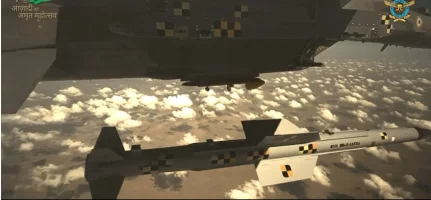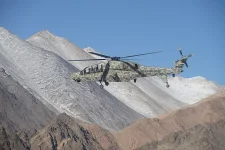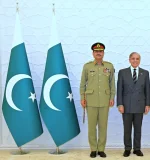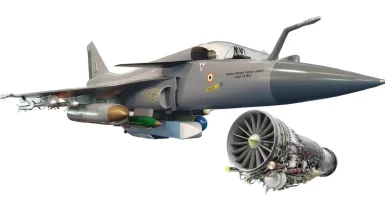- Views: 2K
- Replies: 9
The Eurofighter Typhoon consortium is shifting its immediate sales focus to promising opportunities in Europe and the Middle East due to a lack of clear progress on India's ambitious Multi-Role Fighter Aircraft (MRFA) acquisition program.
The head of the European consortium recently highlighted the prevailing uncertainty, signaling a strategic pivot towards markets with more immediate demand.
The MRFA tender, a critical component of the Indian Air Force's (IAF) modernization plans, aims to procure 114 advanced jets.
This acquisition is vital for the IAF to counter a significant depletion in its fleet size, which currently stands at approximately 31 squadrons against a sanctioned requirement of 42.
This gap is expected to widen as several squadrons of aging aircraft, including the Jaguar and Mirage 2000, are scheduled for retirement in the coming years.
However, the formal Request for Proposal (RFP), a document that outlines the specific technical requirements and procurement conditions, has not yet been issued by the Indian Ministry of Defence.
This ongoing delay has placed global aerospace giants, including the Eurofighter consortium, in a state of limbo.
The indecision is reportedly influenced by a complex evaluation of factors, including a strong push for indigenous platforms like the forthcoming Tejas Mk2 and broader geopolitical considerations.
The Eurofighter Typhoon, a highly capable twin-engine multirole fighter, is a prominent contender for the Indian contract, facing competition from other leading global aircraft such as France's Rafale, the American F-15EX, and Sweden's Gripen.
Without the RFP, it is difficult for these manufacturers to present a detailed and tailored offer that aligns with India's specific operational and industrial needs, including extensive "Make in India" requirements for technology transfer and local manufacturing.
In response to the stalled progress in India, the Eurofighter consortium is now actively pursuing more definite sales prospects.
Nations such as Austria, Greece, Poland, Portugal, Saudi Arabia, and Turkey have been identified as key targets where the Typhoon is being considered to modernize national air forces.
Recent orders and expressed interest from several of these countries provide a more stable business outlook for the manufacturer.
This development underscores the highly competitive and time-sensitive nature of the international defence market. For India, the extended delay in the MRFA process could impact its negotiating leverage.
As global defence manufacturers realign their production and strategic priorities towards more certain customers, it could potentially complicate future procurement timelines and terms for the Indian armed forces.




